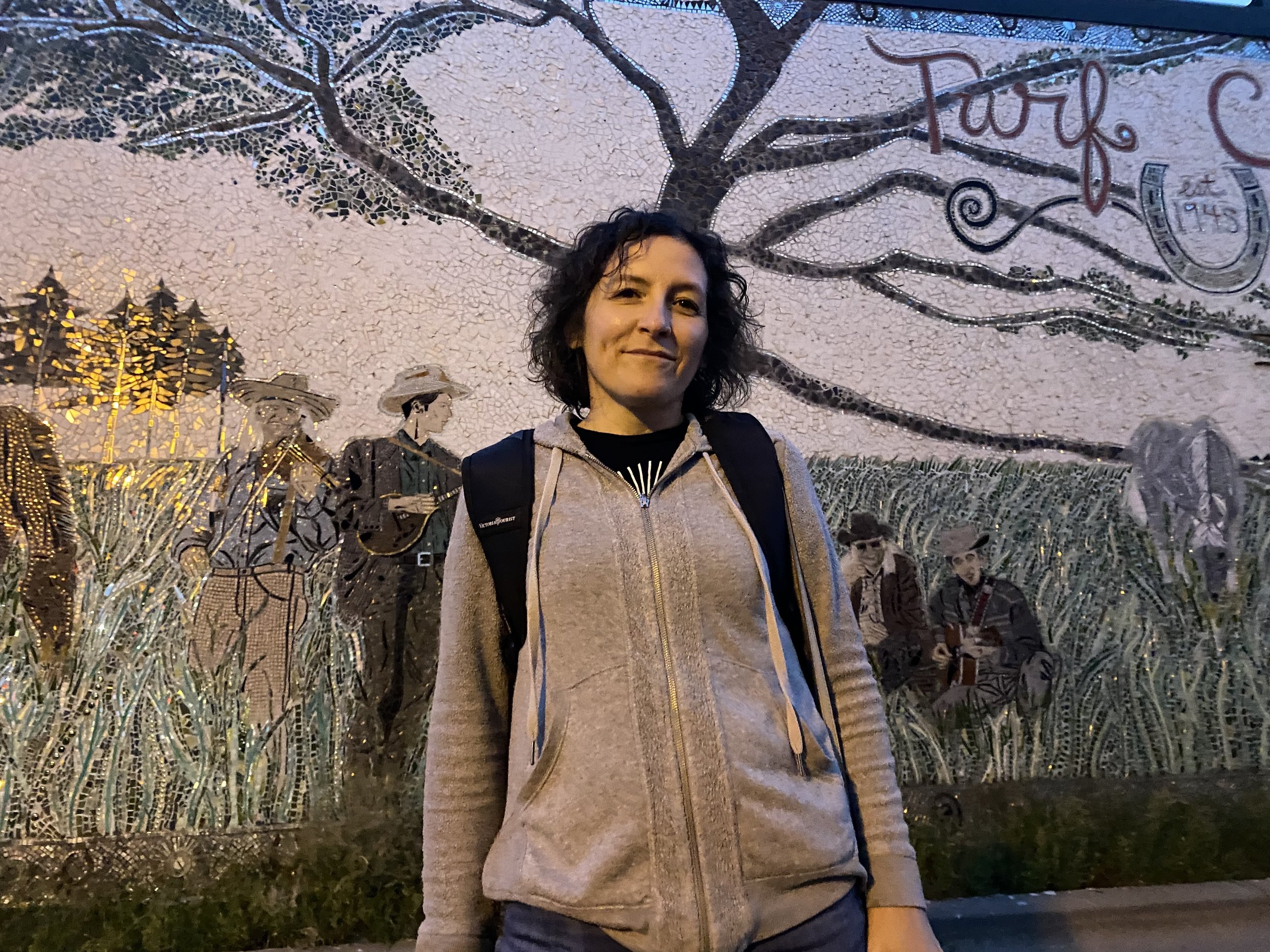Music Review: The Deep Dark Woods
‘Changing Faces’ finds a new sound in the most sorrowful depths of traditional folk
How can music feel so ethereal yet so, so heavy? It’s something I kept asking myself as I listened, fascinated, to Changing Faces, the sixth album of Canadian alt-country-folk band The Deep Dark Woods.
The brief record (just eight songs and thirty minutes long) opens with a sweet jangle of guitar strings and bright, though slightly sad, notes of a pedal steel. However, the title does warn that the song is “Treacherous Waters.” Almost immediately, the instruments turn spooky and melancholy and stay that way through most of the whole album.
The effect of listening to Changing Faces from beginning to end is like being under a spell, or in a dream. Ryan Boldt’s gently wavering voice layers onto the instruments like he’s murmuring an incantation. The lyrics are similarly disorienting--are they different stories or one long story of a world-weary traveler, missing a distant love and an elusive homeland that he seemingly can’t return to? Or are they the mental torments of a sleepless night as he struggles with depression, recycling thoughts of mistakes made and losses experienced over a lifetime?
Nearly all eight songs sound like they could be modernized takes of old folk songs from Europe and Appalachia, but in fact there’s only one traditional song on the album. “Anathea,” one of hundreds of spins on a centuries-old tale of a young maiden pleading with a judge or executioner, was most famously performed by Judy Collins, and it contains the most concrete storyline of any of the songs. (The specifics are so terrible it’s a relief to return to the more obscure sadness of the originals.)
I’d be hard-pressed to distinguish the other seven songs from one another. The aching melodies and recurring themes of nature, light and dark, wayfaring, homesickness and pining for a lover are more striking than the subtle (to me) differences from song to song. That’s not to say there aren’t standout moments when the instruments swell, or when Boldt punctuates his timeless folk lyrics with unique and perfect turns of phrase (my favorite: “It's too bright in here to get myself together”). It’s just that I don’t tie those moments to the song in my mind; they’re part of the whole journey of the album.
The last two songs seem to provide a glimpse of the narrator being reunited with a true love, lyrically, but the instrumentation turns even darker and more unsettling, so it’s hard to feel any happy closure when Boldt sings “we prepared a dwelling there” or “There she was, my beloved / She was coming after me.” I was left thinking there was more to the stories, that they couldn’t end happily, not the way they’re sung or played.
I wonder what the songs’ effect will be when they’re released into the mix of my music app, to come up occasionally on shuffle. Maybe they’ll stand out more and I’ll start to get to know them better on their own unique merits. Or maybe they’ll still have the same powerful effect they do together: a disorienting but captivating reverie of longing and regret.
You can buy Changing Faces at Six Shooter Records or via Bandcamp. Listen to “When I Get Home Tonight”:
Carol Roth is a full-time marketing copywriter and the main music journalist and social media publicist for Adventures in Americana. In addition to studying the guitar and songwriting, Carol’s additional creative side hustle is writing self-proclaimed “trashy” novels under the pseudonym @taberkeley!



